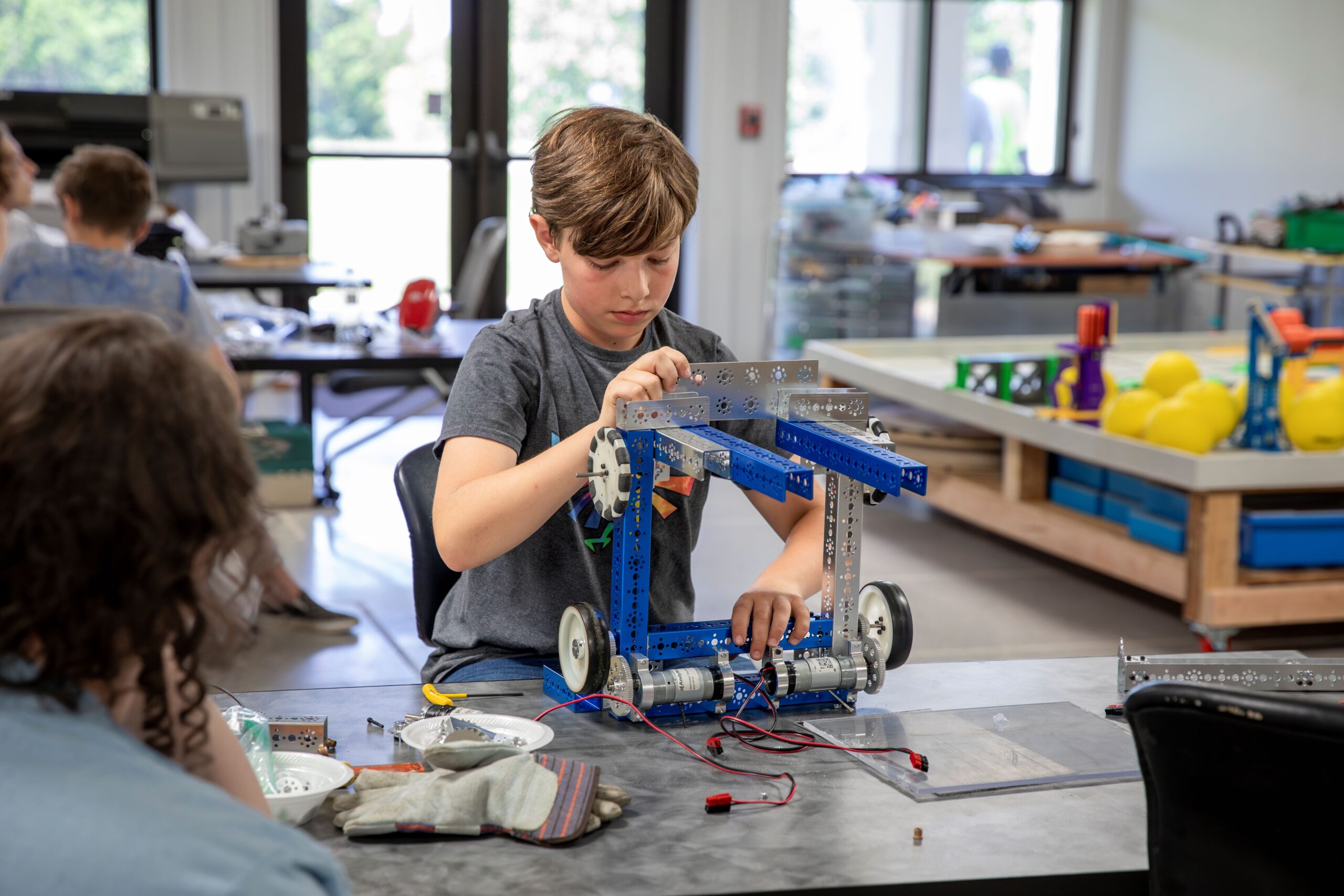
Building Tomorrow’s Leaders: How the Chickasaw Nation STEM Academy Shapes Young Minds
July 15, 2024 by Jessika Leatherbury
By: Sunnie Dawn Baker
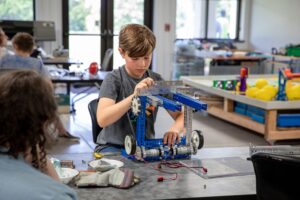 Space exploration has long held a fascination and curiosity for people, especially children. This interest led to the creation of the Chickasaw Nation Aviation and Space Academy (CNASA) in 2003. However, the strategy to engage children’s curiosity with one area of science eventually led to the development of more programming, and five years later, the Chickasaw Nation STEM Academy developed and added a competitive robotics team. Now, twenty-one years later, the STEM Academy hosts numerous summer day camps, STEM Home School Academy, Esports, and four different after school robotics leagues encompassing 10 active teams.
Space exploration has long held a fascination and curiosity for people, especially children. This interest led to the creation of the Chickasaw Nation Aviation and Space Academy (CNASA) in 2003. However, the strategy to engage children’s curiosity with one area of science eventually led to the development of more programming, and five years later, the Chickasaw Nation STEM Academy developed and added a competitive robotics team. Now, twenty-one years later, the STEM Academy hosts numerous summer day camps, STEM Home School Academy, Esports, and four different after school robotics leagues encompassing 10 active teams.
While CNASA was the beginning, it remains a popular day camp. They offer both the Junior Academy and the Senior Academy to provide age-appropriate instruction for those entering grades 4-6 and a more advanced experience for those in grades 7-12. Intro to LEGO Robotics serves students entering grades 4-7, introducing them to the possibilities of robotics with familiar materials. Robotics Lab is available to students entering grades 8-12, exploring beyond LEGOs to 3D printing, CNC (computer numeric control), CAD (computer-aided design), and coding. FemSTEM specifically targets girls entering grades 6-12, encouraging them to pursue their interests in STEM by working directly with professional women in the field. The youngest group, Junior Native Explorers, serves students entering grades 1-3, teaching them about earth and natural sciences through hands-on experiments and exploration. Once a child joins the program, Luke Kerr, Program Manager for the Chickasaw Nation STEM Academy, and his team encourage them to continue their studies by providing plenty of opportunities, including adding an Esports team for this coming year in addition to the after-school robotics teams designed for third through twelfth grade.
Kerr never had his sights set on education. His background is in design, engineering, CAD, CNC, and manufacturing. He spent ten years working at GAMI/Tornado Alley Turbo before coming to the Chickasaw Nation eighteen years ago to work for an internal architecture firm. About ten years ago, though, he took on his current role with the STEM Academy and loves it. Kerr says, “Sharing your experience, knowledge, and skill with someone and watching them develop these things further with their own ideas is extremely rewarding.” Despite his love for the program, however, there are still challenges, particularly getting kids, and parents, to understand that STEM, and particularly robotics, can be beneficial for everyone.
STEM is interwoven in every aspect of our lives but, even more than that, it is essentially problem solving. Kerr likes to relate what they do to shop class. Kids come into the lab, which is essentially their “shop,” and use tools and problem solving to create things. While the tools and products might differ from what parents are used to, the class teaches a similar skill set and encourages students to think creatively and analytically, analyzing problems to find the best solution. Sometimes, through the process, their solutions don’t work, but these failures provide opportunities for growth. Sometimes, to discern what will work, students must learn what doesn’t work. STEM and robotics offer students this opportunity in a safe and supportive environment.
The students must also learn the “soft skills” in addition to the technical skills. Especially in the robotics program, students must learn how to work together as a team and communicate with others. This necessity is especially true for the FIRST® Robotics Competition (FRC) varsity team. The competition, open to students entering the 10th-12th grade, represents the highest level of competition. Ideally, participants join the LEGO League team in elementary and work through those challenges until they reach 7th grade, when they can join the VEX IQ team. Upon reaching 9th grade, they can move to the FIRST® Tech Challenge (FTC) team and eventually earn a spot on the varsity FRC team their sophomore year of high school. Each team progresses in difficulty and complexity, both with tech skills and soft skills. At each level, individuals must speak to judges, present their projects, and answer questions. However, upon reaching the FRC level, they must communicate effectively with competing teams due to the unique nature of that particular competition.
When teams go to the regional competitions for FRC, they compete in their first round over the course of a day and a half. After the qualification matches, eight teams are given the title “Alliance Captain.” These Alliance Captains then select two or three other teams to compete with them in the final round. Because of this, from the very beginning, the competition encourages teams to get to know each other, help each other, and learn from each other. While some team members are busy perfecting their robot design or tweaking their coding, others watch the competition, assess their strengths and weaknesses, and make friends. Teams design swag to bring with them and give to other teams, cementing these relationships. Then, when the Alliance Captains draft their partners for the final round, they already have these connections and know who will be most capable of filling their particular gaps.
The Chickasaw Nation STEM Academy teaches more than Science, Technology, Engineering, and Math. Kerr and his team teach these kids how to persevere, work hard, and use their failures to succeed. They teach the students how to think critically and solve problems, but they also teach them how to communicate effectively in both professional and personal environments. Whether they are speaking about their projects to a panel of judges or making friends and potential allies at competition, these young people learn skills that will benefit them as they pursue their future goals. To join these innovative programs or for more information, visit Chickasaw.net/STEM or contact the STEM Academy at STEM@Chickasaw.net or (580) 272-5579.
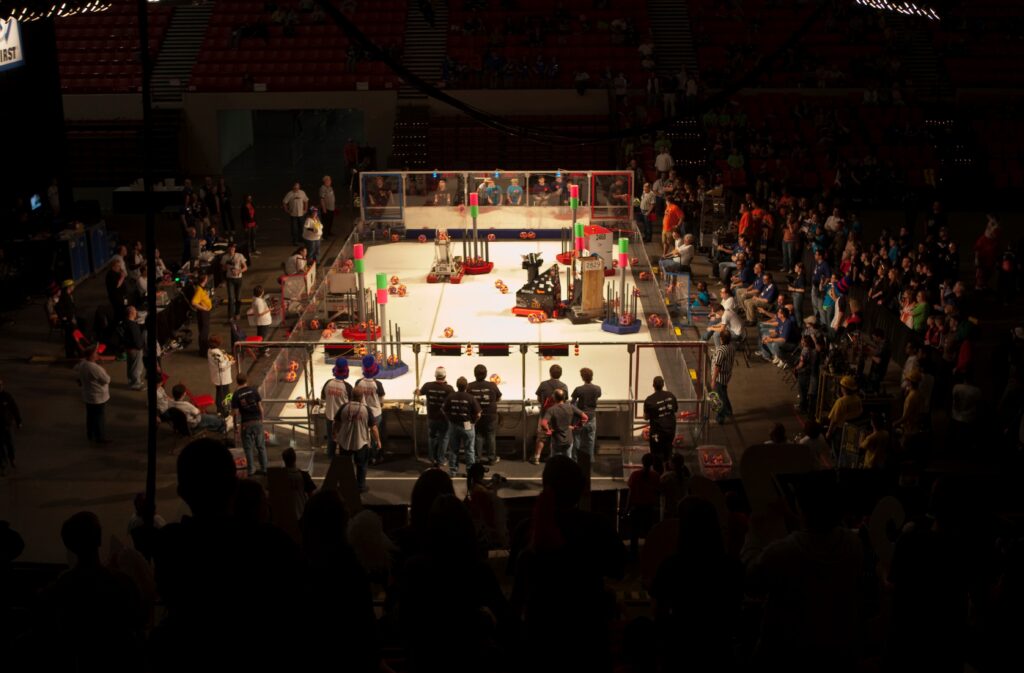
Sign up to receive more news from the Ada Jobs Foundation HERE!
Written by
Jessika Leatherbury
You may also interested in:
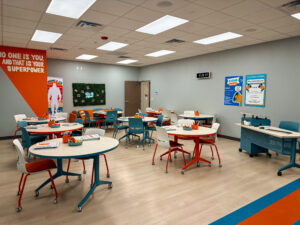
BUILDING FUTURES: WORK READY ADA CELEBRATES ITS FIRST YEAR
BY: CATHLENA SPENCER Just one year ago, Work Ready Ada, a new employment readiness program, was launched in partnership with Pontotoc Technology Center (PTC). The program, funded by Oklahoma Human
AI IN EDUCATION: A CONVERSATION WITH VINAYAK MITTY
BY: SUNNIE DAWN BAKER One of the areas in technology with the most potential for entrepreneurial growth is Artificial Intelligence (AI). AI is increasingly shaping every part of our lives,
Adapt and Overcome: Allison Poe’s Recipe for Resilience and Growth
By: Sunnie Dawn Baker Allison Poe has always followed her feet. She waits for the signs to appear and, once she recognizes them, she travels that path, and has never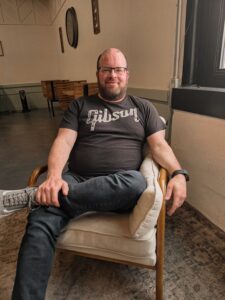
Jeff Warren: A Life in Sound, Vision, and Storytelling
By: Sunnie Dawn Baker When Jeff Warren got involved in the Houston music scene as a teenager, he had no clue where his path would lead. Now, nearly thirty years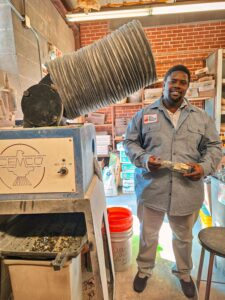
From Pitch to Progress: ECU's Glass Recycling Program Turns Waste into Opportunity
By: Sunnie Dawn Baker In 2018, Dr. Christine Pappas competed in Ada Jobs Foundation’s Big Pitch Competition by promoting grinding glass bottles into sand. She won the Big Pitch that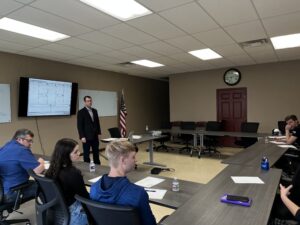
The Importance of Customer Discovery: Know Your Audience and Know Your Market
By: Sunnie Dawn Baker Entrepreneurs and small business owners must consider many factors to achieve success, with their target market being one of the most crucial. Sometimes, when people are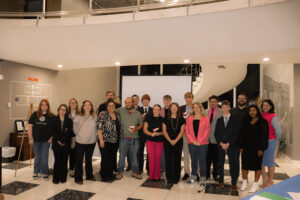
What Does Economic Development Do for You? The Significance of the Economic Multiplier
By: Sunnie Dawn Baker People often find the term “economic development” vague and confusing. Understanding how economic development works and benefits the community can be challenging. Though there are many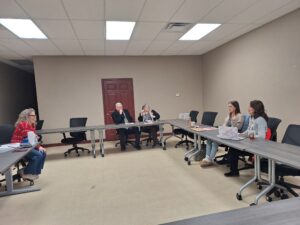
Helping Entrepreneurs One Workshop at a Time: Lauri Rowe and QuickBooks for Small Businesses
Entrepreneurs tend to be filled with passion and big ideas. They have found a solution to a problem they see in the world, and they barrel ahead, excited for their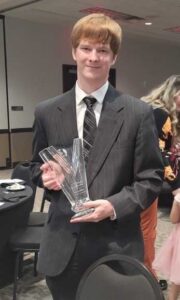
Hunter Cook: Technology, Entrepreneurship, and the Written Word
By: Sunnie Dawn Baker Hunter Cook started writing when he was seven years old. At first, he wanted to write comic books, but then he realized he couldn’t draw. He